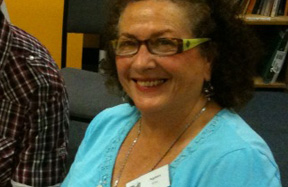We offer classes to ASRC members each morning of each weekday. Students are able to attend one day a week or more if they choose. The program is run by volunteers who are qualified and experienced teachers, providing small-group tuition for all levels with a minimum of three tutors daily.
We tutor learners in English conversation, reading, writing and comprehension – to assist them to adapt effectively to their new environment and to effectively participate in Australian employment and community. The class atmosphere is welcoming and supportive where students can relax and socialize as they learn.
Adult learners come to us via referrals from other ASRC programs, particularly Casework, and on arrival are allocated to an appropriate level group. There is a high level of cross-cultural interaction with many students being of African, Middle Eastern and Asian descent, and they generate a rich exchange of ideas about differing backgrounds and cultural practices. Our teaching incorporates aspects of Australian cultural history and society along with the usual EAL study materials. In addition, concepts such as ethnic diversity as rich and valuable, tolerance, mutual respect, ‘a fair go’, and respect for religious diversity are included as topics for class discussion and in study materials.
To find out how to volunteer at the ASRC and be a part of our EAL team, please click here.





Connect with us
Need help from the ASRC? Call 03 9326 6066 or visit us: Mon-Tue-Thur-Fri 10am -5pm. Closed on Wednesdays.